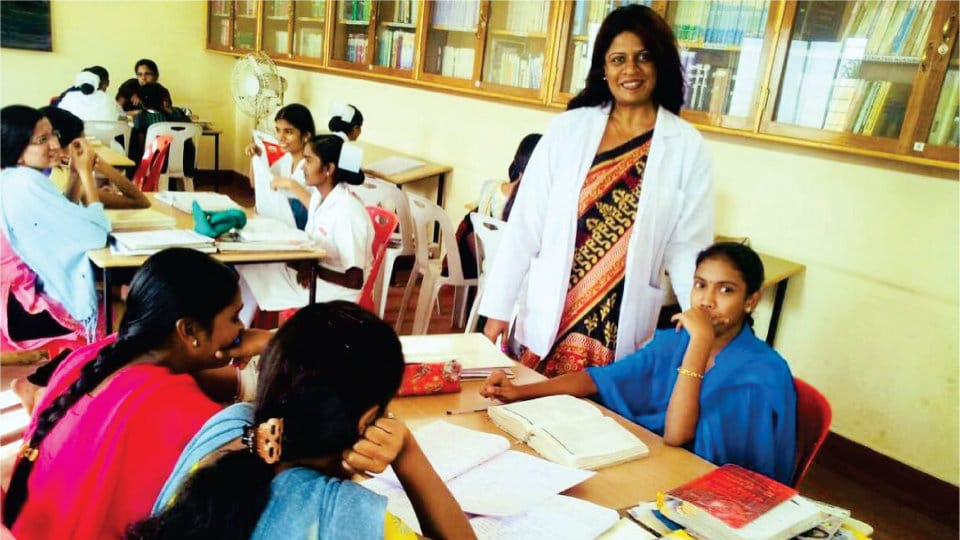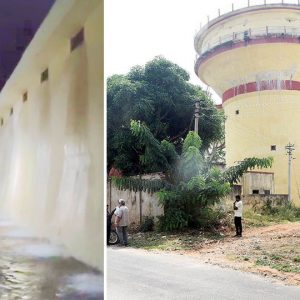By S. Kenneth Shishir
With examinations fast approaching, academic stress, parental pressure, anxiety and depression are mounting on the young minds and are snatching the happy life of students who are being pressurised to study, score, score and score high marks in the examinations, says Dr. Rekha, Counselling Psychologist at B.M. Hospital here.
Stating that the rate of anxiety and depression have sky-rocketed in the last few decades, Dr. Rekha said that studies have shown that 50% students suffer from health issues such as depression, anxiety and hysteria which sometimes result in students getting addicted to alcohol and drugs and added that studies have shown that students suffer from anxiety or depressive illness during adolescents which was seriously affecting their mental status and habits like eating, sleeping and drinking.
Noting that academic stress involves mental distress regarding anticipated academic challenges or failure or even an awareness of the possibility of academic failure, Dr. Rekha said that during the school years, academic stress may show up in the child’s environment such as home, school, neighbours or friends.
She said that school-related situations, such as tests, grades, studying, self-imposed need to succeed, as well as that induced by others, were the main sources of stress for students and added that the impact of academic stress have led to poor outcomes in the areas of exercise, nutrition and self-care. The education system here demands long hours of systematic study every day, she said and added that the elaborate study routines that are expected by students span from the morning till late evening hours, leaving little time for recreation and we hardly see children playing now-a-days.
Look out for symptoms
When asked how can parents identify stress and depression in their children, Dr. Rekha said that parents have to look for symptoms such as loss of appetite, change in friends frequently, carelessness, decline in academic performance, missing classes or skipping school, loss of interest in favourite activities, trouble in school, changes in eating or sleeping habits and deteriorating relationships with family members and friends among their children and added that if the parents find any of the above symptoms in their children, they should seek the help of a professional counsellor for guidance.
Mentioning a case history of a student, Dr. Rekha said that 19-year-old Varun (name changed), a first year degree student, came for counselling as he was experiencing insecure feeling of being stressed. He was particularly concerned about his negative thoughts and attitude at school and at home and would like to change.
“Varun was looking for professional counsellor for help and he reached me through reference from the school with high hopes. According to my keen observation, Varun is quite adaptable to the situation and quite smart enough according to his ability. Most of the time he fails to listen and follow instructions. He always interacts more with children who are below his age level, laughs for silly reasons and never tries to do anything on his own. In some situation, he starts crying for silly reason and often complains about aches and pain besides being very stubborn to his parents,” Dr. Rekha said.
After counselling sessions, which were done twice a week after his school hours, drastic changes were observed in Varun. He not only picked up reading and writing but also shown remarkable changes in his behaviour. Gradually, he stated showing interest in sports, yoga and academics, said Dr. Rekha adding that she stressed more on improving the problem-solving skills, reinforcement and recreational techniques in her counselling process to help Varun solve his problems.
How counselling helps?
When asked how counselling helps the students to overcome such physiological problems, Dr Rekha said that counselling is a helping process by way of talking and discussing which helps the person to find solutions and feel comfortable.
Many counselling techniques such as ventilation, reassurance, explanation, reinforcement, suggestion, improving the problem-solving skills, encouraging healthy defence mechanisms are adopted, which helps them to minimise their problems and correct themselves to see life more beautifully and effectively, she added.
Speaking about the role of professional counsellors, Dr. Rekha said that they have greater responsibility in the area of counselling as it is the utmost responsibility of a counsellor to help students overcome their problems. Counsellors also contribute good citizens to society and help them maintain healthy mental status, she added.
[e-mail: [email protected]]








Recent Comments